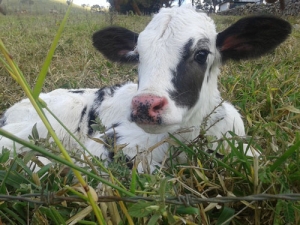NZ Catchment Groups Thrive with ‘Source to Sea’ Approach
The most successful catchment groups in NZ are those that have 'a source to sea' approach.
 MPI deputy director general regulation and assurance Scott Gallacher says the nature of the footage aired on the programme was unacceptable.
MPI deputy director general regulation and assurance Scott Gallacher says the nature of the footage aired on the programme was unacceptable.
The Ministry for Primary Industries is investigating the alleged mistreatment of bobby calves that were the subject of a television programme last night following receipt of footage that was aired on the programme.
MPI deputy director general regulation and assurance Scott Gallacher says the nature of the footage aired on the programme was unacceptable.
"Anybody seeing this type of abuse would be appalled. We share that view," says Gallacher.
He says MPI takes animal welfare very seriously and there are very clear laws and guidelines for how animals should be treated.
The footage shown in the programme was part of extensive footage given to MPI by Farmwatch on 14 September. Animal welfare officers reviewed the footage and immediately began an investigation.
MPI says they must build a robust case before proceeding with any enforcement and cannot comment on the specifics of the investigation as it may prejudice its outcome.
However, the codes of welfare concerning bobby calves are clear on the following issues:
MPI says they work in conjunction with industry and do a lot of work with farmers, transporters and processors to ensure the humane treatment of bobby calves and that everyone working with animals understand their obligations.
MPI gets about 700 animal welfare complaints a year and follows them all up. Where there is offending people are held to account. MPI has a strong record of successful animal welfare prosecutions and the penalties are significant.
The maximum penalty for wilful ill-treatment is five years in prison and $100,000 for individuals, and a maximum of $500,000 for a company. A former dairy farmer was sentenced to four and half years in prison earlier this year for wilfully ill-treating animals.
An additional ten million dollars in new funding was provided in the 2015 budget for animal welfare. Parliament has passed the Animal Welfare Amendment Act 2015 to improve compliance and enforcement.
New Zealand and Chile have signed a new arrangement designed to boost agricultural cooperation and drive sector success.
New DairyNZ research will help farmers mitigate the impacts of heat stress on herds in high-risk regions of the country.
Budou are being picked now in Bridge Pā, the most intense and exciting time of the year for the Greencollar team – and the harvest of the finest eating grapes is weeks earlier than expected.
The Real Estate Institute of New Zealand (REINZ) has released its latest rural property report, providing a detailed view of New Zealand’s rural real estate market for the 12 months ending December 2025.
Rural retailer Farmlands has released it's latest round of half-year results, labeling it as evidence that its five-year strategy is delivering on financial performance and better value for members.
OPINION: "We are back to where we were a year ago," according to a leading banking analyst in the UK, referring to US president Donald Trump's latest imposition of a global 10% tariff on all exports into the US.
OPINION: Expect the Indian free trade deal to feature strongly in the election campaign.
OPINION: One of the world's largest ice cream makers, Nestlé, is going cold on the viability of making the dessert.